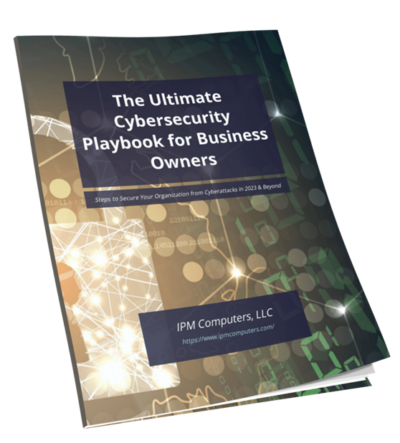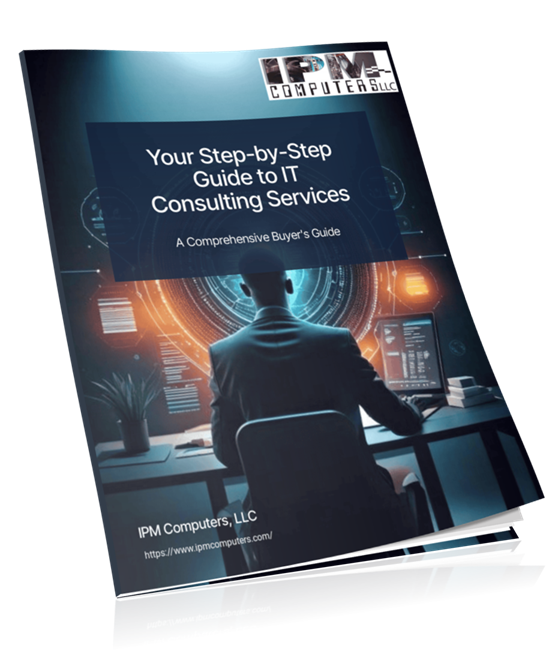Managed IT for law firms in Myrtle Beach has become an essential part of the modern legal world, offering Myrtle Beach law firm IT services tailored to the industry’s unique needs. Managed IT providers (MSPs) extend their services beyond simple troubleshooting, delivering comprehensive solutions designed to enhance the operational efficiency and security of law firms.
The legal industry increasingly relies on technology to streamline operations, manage sensitive client information, and maintain a competitive edge. This reliance demands managed IT in Myrtle Beach that can handle complex workflows and protect significant data. Law firms, which consistently deal with substantial amounts of confidential information, are at higher risk from cyber threats and strict regulatory requirements.
Managed IT addresses these problems by implementing advanced cybersecurity measures, ensuring compliance with regulations like HIPAA, and providing continuous monitoring and support.
Safeguarding Sensitive Data and Ensuring Compliance
Data security is crucial for law firms because they handle sensitive client information. Managed IT is essential in keeping this data safe from cyber threats and making sure they follow strict legal rules like HIPAA.
Protecting Sensitive Client Information
Law firms are becoming more attractive targets for cybercriminals because of the valuable data they have. Managed IT offer strong defense strategies specifically designed for the legal industry:
- Advanced Encryption Protocols: Reputable MSPs use cutting-edge encryption methods to protect data both during transmission and when it’s stored. This means that even if someone manages to intercept the data, they won’t be able to read it without the correct decryption key.
- Regular Security Audits: Continuous monitoring and frequent security assessments are vital parts of managed IT services. These audits help identify weaknesses in a firm’s IT system, allowing for prompt action before any breach happens.
Ensuring Compliance with Legal Regulations
For law firms dealing with personal health information (PHI), following regulations like HIPAA is necessary. Failing to do so can lead to severe penalties and harm a firm’s reputation. Managed IT assist law firms in understanding these complicated requirements:
- HIPAA Compliance: MSPs offer solutions that meet HIPAA standards, such as secure storage options, encrypted communication channels, and strict access controls.
- Comprehensive Documentation: Keeping detailed records of all security measures and compliance efforts is crucial. Managed IT services help create and organize this documentation, providing proof of compliance during audits.
Key Cybersecurity Measures
To strengthen defenses against constantly changing cyber threats, MSPs use various specialized cybersecurity strategies:
- Intrusion Detection Systems (IDS): These systems keep an eye on network traffic for any suspicious activities, sending immediate alerts in case of potential breaches.
- Multi-Factor Authentication (MFA): Implementing MFA adds an extra layer of protection, requiring users to confirm their identity through multiple methods before accessing sensitive information.
- Employee Training Programs: Human error remains a significant vulnerability. Regular training programs conducted by managed IT educate staff on recognizing phishing attempts and other cyber threats.
Managed IT not only safeguards sensitive data but also ensures that law firms stay compliant with all relevant regulations, protecting their operations from both cyber threats and legal consequences.
Implementing Comprehensive Data Protection Strategies and Cybersecurity Measures
Data security measures for law firms are crucial in maintaining client trust and ensuring smooth operations. A strong data protection strategy specifically designed for legal professionals’ unique needs includes several key elements:
1. Proactive Disaster Recovery Planning
Law firms need detailed disaster recovery plans (DRPs) to reduce the impact of cyber incidents. These plans should outline procedures for data restoration and system recovery.
Implementing a tiered backup system that maintains daily, weekly, and monthly backups stored both on-site and off-site ensures data can be recovered quickly after any disruption.
2. Off-Site Backups
Storing copies of critical data in different locations is essential for protecting information against local disasters such as fires or floods.
Using cloud-based backup solutions enables continuous data replication to secure remote servers, providing an additional layer of protection.
3. Redundant Systems
Redundancy in IT infrastructure helps maintain business continuity by minimizing downtime during unexpected events.
Deploying redundant network connections and power supplies ensures that even if one system fails, another can take over without interrupting operations.
4. Advanced Encryption Protocols
Encrypting data both at rest and in transit protects sensitive client information from unauthorized access.
Using AES (Advanced Encryption Standard) encryption for stored files and SSL/TLS protocols for data transmission enhances security.
5. Regular Security Audits
Conducting routine audits helps identify weaknesses within the IT infrastructure before they can be exploited by malicious actors.
Partnering with MSPs to perform comprehensive security assessments ensures continuous improvement of cybersecurity measures.
Law firms can ensure business continuity during cyber incidents while maintaining high standards of data security and compliance with regulatory requirements. This proactive approach not only reduces risk but also strengthens the firm’s commitment to protecting client information, thereby building trust and reliability in their services.
Addressing Common Cyber Threats Faced by Law Firms
The legal industry is increasingly becoming a prime target for cybercriminals due to the wealth of sensitive information law firms handle. Prominent among these threats are phishing attacks and social engineering tactics specifically designed to exploit vulnerabilities within legal practices.
Phishing Attacks Prevention Strategies for Lawyers
Phishing attacks often involve deceptive emails that appear legitimate but aim to steal sensitive information such as login credentials or financial data. For lawyers, these attacks can be particularly damaging, potentially compromising client confidentiality and firm reputation.
- Awareness Training: Regular training sessions help staff recognize phishing attempts. This includes identifying suspicious email characteristics like unexpected attachment requests or dubious links.
- Email Filtering: Implement advanced email filtering solutions that can detect and quarantine potential phishing emails before they reach inboxes.
- Multi-Factor Authentication (MFA): Enforce MFA across all accounts to add an extra layer of security. Even if attackers obtain login information, MFA can prevent unauthorized access.
Social Engineering Defense Techniques for Law Firms
Social engineering involves manipulating individuals into divulging confidential information. Attackers may pose as trusted contacts or authoritative figures to gain access to restricted data.
- Employee Vigilance: Encourage employees to verify the identity of anyone requesting sensitive information, especially if the request is unusual or urgent.
- Strong Verification Processes: Implement strict verification protocols for any requests involving access to sensitive data or financial transactions.
- Simulation Exercises: Conduct regular social engineering simulations to test and improve employee responses to potential attacks.
Combining these strategies helps create a multi-layered defense that reduces the risk of successful cyberattacks. Law firms must prioritize cybersecurity education and robust authentication measures to protect against evolving threats in today’s digital landscape.
Strengthening Network Security within Your Law Firm’s Infrastructure
Ensuring the security of your law firm’s network is crucial in protecting against unauthorized access and potential breaches. A multi-layered approach to network security improvements for law firms offers the strongest defense.
Key components include:
- Firewalls: These serve as the initial barrier by filtering incoming and outgoing traffic, blocking harmful activities while permitting legitimate access. Advanced firewalls can also provide intrusion prevention capabilities.
- Intrusion Detection Systems (IDS): IDS continuously monitors network traffic for suspicious activities or policy violations, alerting IT administrators to potential threats before they escalate into significant breaches.
- Secure Wi-Fi Configurations: Ensuring that your Wi-Fi networks are secure involves using strong encryption protocols such as WPA3 and regularly updating passwords. Segmenting guest networks from internal networks can further reduce risks associated with unauthorized access.
A mid-sized law firm implemented a next-generation firewall combined with an IDS to monitor real-time traffic. As a result, they successfully intercepted multiple phishing attempts aimed at compromising their internal email systems.
Implementing these security measures not only strengthens your network perimeter but also ensures compliance with industry regulations, thereby protecting sensitive client information.
Choosing the Right Managed IT Service Provider for Your Law Firm
Selecting a reliable MSP is critical for safeguarding your law firm’s operations and ensuring robust data security. Here’s what to consider when evaluating options:
1. Industry Expertise
Legal-Specific Knowledge: Opt for providers with demonstrated experience working specifically with law firms. This ensures they understand the unique regulatory and operational challenges, including compliance with HIPAA and other legal standards.
Track Record: Look for testimonials or case studies from other law firms to gauge their effectiveness and reliability.
2. Scalability of Solutions
Growth Potential: As your firm expands, your IT needs will evolve. Choose a provider that offers scalable solutions to accommodate growth without compromising on service quality.
Flexible Packages: Ensure they provide flexible service packages that can be customized to fit your firm’s size and specific requirements.
3. Responsiveness to Support Requests
24/7 Support Availability: Legal practices often operate outside standard business hours, making round-the-clock support essential.
Rapid Response Times: Assess their average response times to ensure quick resolution of any IT issues, minimizing disruption to your practice.
4. Comprehensive Services
Proactive Monitoring and Maintenance: Select providers who offer proactive monitoring of your systems to detect and resolve issues before they escalate.
Data Protection Measures: Ensure they implement advanced data protection strategies, including encryption, regular backups, and disaster recovery planning.
Leveraging Technology Solutions like Cloud Computing and Document Management Systems
Cloud Technology Benefits for Law Firms
Cloud computing has changed the way law firms work, offering benefits that improve accessibility and collaboration:
- Increased Accessibility: Legal professionals can access files and applications from any location with an internet connection. This capability is crucial for lawyers who need to work remotely or travel frequently.
- Enhanced Collaboration: Teams can collaborate in real-time on documents, making it easier to coordinate efforts and maintain consistent communication. This functionality is particularly beneficial for cases involving multiple attorneys or external consultants.
- Scalability: Cloud services are easily scalable, allowing law firms to adjust their resources based on current needs without significant capital investment.
- Cost Efficiency: By reducing the need for physical servers and IT infrastructure, cloud computing lowers operational costs. Firms pay only for the resources they use, which can result in substantial savings.
Document Management Systems Advantages for Lawyers
DMS offer a streamlined approach to handling legal documents, providing several key advantages:
- Workflow Efficiency: DMS software automates many administrative tasks associated with document handling. Features such as version control, metadata tagging, and automated filing significantly reduce the time spent on manual processes.
- Secure Storage: Advanced encryption and access controls protect sensitive information from unauthorized access. A robust DMS ensures compliance with regulations like HIPAA by maintaining stringent data protection standards.
- Searchability: Powerful search functionalities enable quick retrieval of documents based on keywords, dates, or other criteria. This capability saves valuable time when preparing for cases or client meetings.
- Integration Capabilities: Modern DMS solutions integrate seamlessly with existing practice management software, minimizing disruptions and ensuring a cohesive workflow.
Implementing these technological solutions not only enhances operational efficiency but also provides law firms with the tools needed to stay competitive in a rapidly evolving digital landscape.
Overcoming Common IT Challenges Faced by Law Firms with Managed Services
IT maintenance remote work solutions technical support challenges faced by law firms are complex and need specialized attention. Recognizing these challenges is the first step towards implementing effective solutions.
Typical IT Hurdles in Legal Practice Settings
Here are some common IT challenges that legal practices encounter:
- Outdated Infrastructure: Many law firms struggle with aging hardware and software that hinder productivity and pose security risks. Legacy systems often lack the necessary features to support modern legal workflows.
- Limited Remote Work Capabilities: With the rise of hybrid work models, secure and efficient remote access has become crucial. Traditional setups may not support remote work, leading to inefficiencies and potential security vulnerabilities.
- Technical Support Issues: Law firms frequently encounter technical difficulties that disrupt daily operations. Inadequate in-house IT support can result in prolonged downtimes and unresolved issues.
How Managed Service Providers Address These Challenges
Partnering with a reliable MSP can transform these IT hurdles into opportunities for growth and efficiency.
Proactive Monitoring and Maintenance
Providers offer proactive monitoring of your IT infrastructure, identifying potential issues before they escalate into major problems. This includes:
- Regular system updates and patches
- Proactive hardware maintenance
- Continuous network monitoring
Proactive monitoring ensures that your systems are always up-to-date and running smoothly, reducing the risk of unexpected downtimes.
Timely Issue Resolution
MSPs provide 24/7 technical support, ensuring any issues are addressed promptly. This minimizes disruption to your practice and allows you to focus on client matters.
- Helpdesk availability around the clock
- Swift response times
- On-site support when necessary
Scalable Solutions for Growth
As your firm grows, so do your IT needs. Providers offer scalable solutions tailored to accommodate your firm’s expansion.
- Cloud-based services: Scalable storage and computing power
- Flexible service plans: Adaptable to changing requirements
- Customizable security measures: Enhanced as per firm size and needs
Enhancing Remote Work Capabilities
To address limited remote work capabilities, they implement advanced solutions such as:
- Virtual Private Networks (VPNs): Secure remote access to firm resources
- Two-Factor Authentication (2FA): Added layer of security for remote logins
- Cloud-based collaboration tools: Facilitate seamless teamwork regardless of location
Embracing The Future Of Your Firm With Managed IT For Law Firms
Embracing the future of your firm with managed IT underscores the importance of successful, proactive cybersecurity measures. Investing in comprehensive managed IT guarantees that law firms are well-prepared to handle the unique challenges they face, safeguarding sensitive client information and maintaining HIPAA compliance in Myrtle Beach.
Managed IT, designed for legal professionals, offers:
- Advanced data security: Protecting sensitive information from cyber threats through encryption protocols and regular security audits.
- Seamless operations: Ensuring business continuity with comprehensive disaster recovery plans and redundant systems.
- Enhanced productivity: Leveraging technology solutions like cloud computing and document management systems for increased accessibility and workflow efficiency.
Every law firm should consider building a relationship with a trusted MSP. Such providers prioritize data security compliance while ensuring seamless, uninterrupted operations.
Frequently Asked Questions About Managed IT
What are managed IT services and why are they essential for law firms?
Managed IT involves outsourcing the management of a law firm’s IT infrastructure and systems to a specialized provider. They are essential for law firms due to the increasing reliance on technology in the legal industry, which necessitates robust IT solutions to support effective legal practices.
How do managed IT help with data security and compliance?
Managed IT plays a critical role in safeguarding sensitive client information from cyber threats and ensuring compliance with legal regulations like HIPAA. Reputable MSPs implement specific cybersecurity measures, including advanced encryption protocols and regular security audits, to protect data.
What key components should be included in a data protection strategy for law firms?
A robust data protection strategy for law firms should include proactive disaster recovery planning, off-site backups, redundant systems, and business continuity measures to minimize downtime during cyber incidents. These components are tailored to meet the unique needs of legal professionals.
What common cyber threats do law firms face and how can they be addressed?
Law firms commonly face cyber threats such as phishing attacks and social engineering tactics. To enhance defenses against these attacks, law firms can implement employee training programs, utilize multi-factor authentication, and develop comprehensive prevention strategies.
What factors should be considered when choosing a managed IT service provider for a law firm?
When selecting an MSP, law firms should consider factors such as industry expertise, scalability of solutions offered, responsiveness to support requests, and the provider’s experience working specifically with legal practices to address their unique challenges.
How can technology solutions like cloud computing benefit law firms?
Cloud computing offers numerous benefits for law firms, including increased accessibility and collaboration among teams. Document management systems streamline workflow efficiency by organizing and managing documents effectively, enhancing overall productivity within legal practices.
Would you like to discuss how partnering with a managed services provider can boost your law firm’s productivity?
Contact us today!
Phone: (910) 463-4299
Email: [email protected]
Our Website: www.ipmcomputers.com






